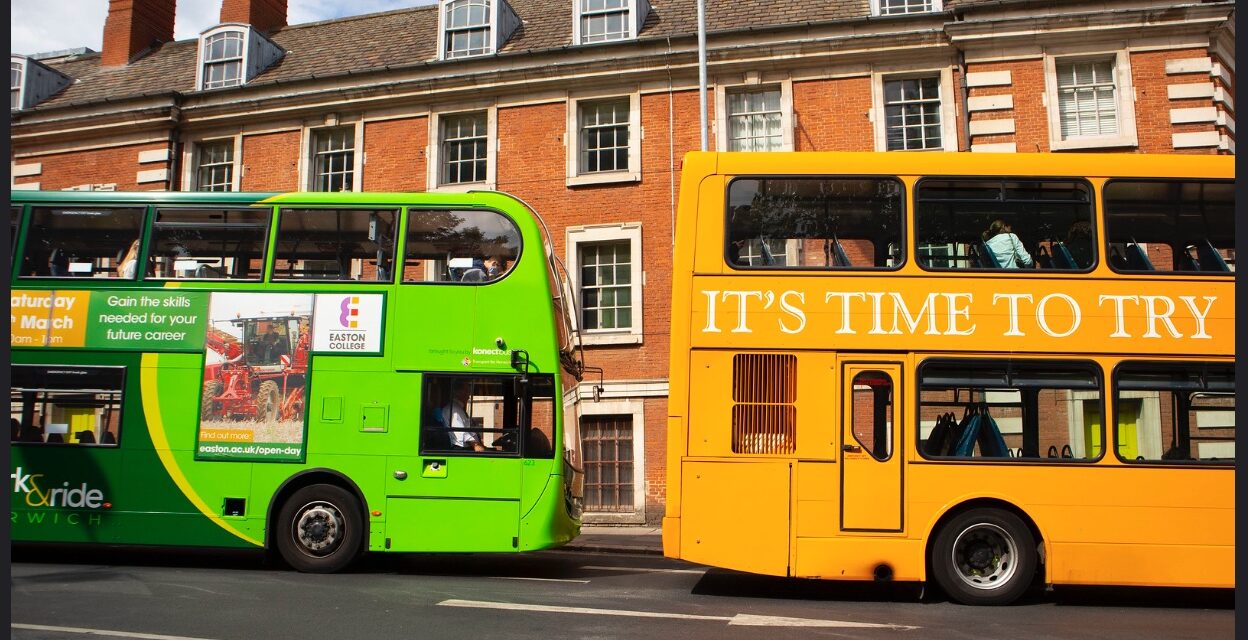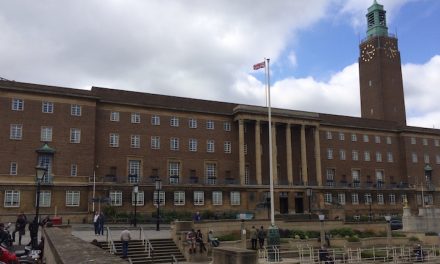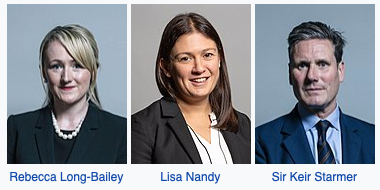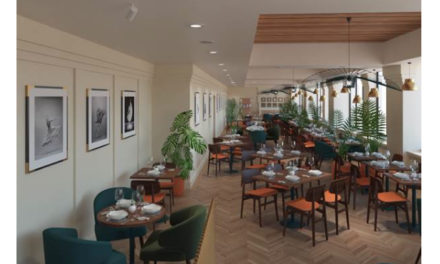Norfolk County Council and local bus operators have joined forces to create a campaign to encourage more people to ‘Choose the bus’ in Norfolk.
The campaign which launches today (Thursday 14 July), will showcase the many reasons that people choose to get the bus. Whether it is making the day more fun for the kids, saving money as fuel prices continue to increase, wanting to reduce your carbon footprint or being able to have a drink with friends after work – the campaign shows that the list of reasons to choose the bus is long.
Cllr Martin Wilby, Cabinet Member for Highways, Infrastructure and Transport, said; “The bus is a great option for so many different reasons and many people may not have even considered it. This campaign demonstrates the many benefits that getting the bus can bring and aims to make bus the first choice for more people across Norfolk. Being a rural county, our bus services are essential in ensuring people can access key services. Although we have seen a great recovery since Covid-19 restrictions were lifted, we now need to see a further rise in passenger numbers – across all services – to avoid seeing any of our vital bus routes struggling to continue.”
During the covid-19 pandemic bus services were hit hard with passenger numbers dropping significantly and, in some areas, to as low as 10%. This year passenger numbers have seen a steady rise and are now back up to around 80% of pre-covid figures across most services.
David Jordan, Marketing Manager for First Eastern Counties Buses said; “We’re delighted to be working with Norfolk County Council on increasing awareness of the many bus services available to both residents and visitors across the county. With both the rising costs of fuel and the ever-increasing awareness of environmental issues, there’s never been a better time to either try the bus for the first time, or a return to choosing this as a regular mode of transport, thus also ensuring the long-term sustainability of bus services for all.”
Steve Royal, Network Manager for KonectBus said; “We are delighted to collaborate with Norfolk County Council and local bus operators to encourage more people to consider the bus as a sustainable alternative to the car. Rural bus networks have kept our local communities connected for many years and with the escalating cost of living, people are now having to revaluate their travel plans”
In March Norfolk County Council received an indicative offer of £49.6m from the DfT to put the Bus Service Improvement Plan published in 2021 into action. The County Council is now working alongside bus operators to shape details of what the money will be spent on. The plan outlines the ambitions for the next 5 years. The plan includes ideas to; simplify ticketing and journey information, cut fares for under 25s, bring in cleaner and greener buses, improve accessibility and bus stops, and make better and more frequent links between the places people live, work and shop.
Graham Smith, Commercial Manager at Lynx Bus in King’s Lynn said; “It’s undoubtedly an exciting time for bus travel in Norfolk as bus operators work closely with Norfolk County Council to develop and deliver transformational schemes that help make buses the mode of choice for travel throughout the County.”
The campaign is the first to be launched as part of the new ‘Travel Norfolk’ brand which will be used across both campaigns and infrastructure projects which aim to help people make the smart choice when travelling around the County.
Councillor Lana Hempsall, Norfolk County Council’s member champion for sustainable travel said; “Campaigns like this one, along with improved infrastructure are vital to help people to leave the car at home. Getting both our residents and visitors to use buses and other more sustainable transport options is key to us achieving our Net Zero ambition.”
To find out more about buses in Norfolk, plan your bus journey or find your nearest bus stop visit www.norfolk.gov.uk/choosethebus
Norwich Eye comments: ‘Many more Norwich residents might be tempted to use buses and other more sustainable transport choices if they were not thwarted by the chaos of County Council road blockages blighting several parts of the city. Norwich is widely disrupted by hundreds of orange plastic barriers protecting works which have little explanation or public sympathy.’






Recent Comments